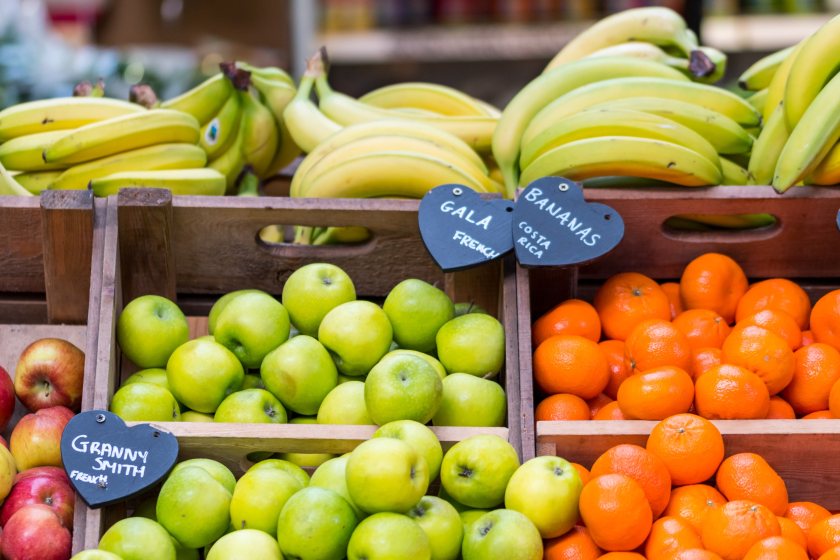
The UK's wet winter has pushed up food prices as costs continue to hover near the record high, according to new data and analysis.
A shopping basket of food has gone up by £10 to £34, since the cost of living crisis began, with extreme weather a major reason.
The basket of goods includes potatoes, rice, broccoli and coffee, and has increased from £23.73 to £33.96 in just three years.
The new analysis, by the Energy and Climate Intelligence Unit (ECIU) which looked at ONS data, blames extreme weather and climate change for increasing food prices by over 40%.
It comes on the day new inflation statistics are released (19 June), which shows that recent food price increases have stuck.
Although year-to-date inflation is down, prices have stayed near record levels, and many foods have not come down since they started to rise rapidly in the second half of 2021.
This is particularly the case for foods affected by climate change in recent years, ECIU explained in its analysis, also released today.
The price of a bottle of olive oil has increased by 136% since June 2021 from £3.64 to £8.60 a bottle, after record breaking heat and back to back droughts hit the olive harvest in Spain, the world’s largest producer.
A bag of sugar is up 72% at £1.19 from 69p, partly due to the impact of extreme weather in major global producers such as India and Thailand.
And closer to home, potatoes are up in price by 49%, with a 19 percent increase since just December 2023.
A 2.5kg bag now costs £2.20, up from £1.85 in just a few months, after the record breaking wet autumn and winter hit the UK potato harvest.
Tom Lancaster, analyst at ECIU, said weather extremes were adding to the cost of living, in turn eroding UK food security.
“Crops have been left rotting in flooded fields, global harvests have been hit by extreme heat and droughts, and the result is higher prices at the tills," he noted.
Scientists recently calculated that storm rainfall during the UK’s wet winter was made 20% heavier by climate change, as recent analysis shows that this could reduce the UK arable harvest by a fifth, knocking nearly a billion of farm revenues.
Alongside arable crops and potatoes, the wet winter has affected field vegetables such as broccoli and cauliflowers, which have increased in price by 43% and 32% respectively since 2021.
These vegetables were also hit hard by the record breaking drought in 2022, which also had a major impact on onions, which are now 27% more expensive than they were in June 2021 at £1.08/kg, compared to 85p/kg.
As well as these staples, products such as chocolate and coffee have also seen sustained price rises. A large bar of chocolate is now 25% more expensive at £1.85, and a jar of instant coffee is up 20%, from £2.61 to £3.14.
The spot price of cocoa increased from $4000 per tonne in December 2023 to over $12,000 per tonne in April 2024 after climate change related extreme weather hit West Africa, the world’s main cocoa producing region.
Mr Lancaster warned that this "doesn’t end until we stop adding to the problem by bringing emissions down to net zero", adding that farmers in the UK "need to be supported to make their harvests more resilient".
"That means policies that rebuild soil health, expand hedges and plant trees that help to trap and hold flood waters," he said.
